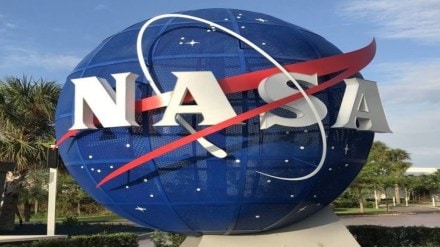NASA has begun blocking Chinese citizens holding valid US visas from working on its programmes, in a move that underscores Washington’s escalating rivalry with Beijing as both nations race to return humans to the Moon.
While restrictions on employing Chinese nationals at NASA are longstanding, those with US visas had previously been permitted to contribute to agency research as contractors, visiting scholars or university-based scientists. That changed abruptly on 5 September, when several individuals reported being locked out of NASA’s IT systems and barred from attending meetings, both in person and online.
NASA spokesperson Bethany Stevens confirmed the restrictions. “NASA has taken internal action pertaining to Chinese nationals, including restricting physical and cybersecurity access to our facilities, materials, and network to ensure the security of our work,” she said.
Sources familiar with the matter told Bloomberg that at least a dozen individuals were affected, speaking anonymously due to the confidential nature of the decision.
US-China rival Moon programmes
The timing reflects the intensifying space race. The United States is pushing ahead with its Artemis programme, aiming to land astronauts on the lunar surface by 2027, despite delays and cost overruns. China, meanwhile, plans to land its own “taikonauts” by 2030, with recent missions demonstrating steady progress.
Sean Duffy, NASA’s acting administrator, dismissed concerns that China could beat the US to the Moon. “I’ll be damned if that happens,” he declared during a recent address to staff, vowing that America would continue to lead in space exploration.
China also has its sights set on Mars, aiming to return samples by 2031. Washington’s plans for a Mars Sample Return mission, developed in collaboration with the European Space Agency, have been placed in doubt following proposed cuts under President Donald Trump’s administration.
US-China tensions
The NASA decision comes against a backdrop of deepening frictions between the two powers. The Trump administration has escalated its confrontational stance on trade, imposing tariffs and curbing scientific collaboration. At the same time, Defence Secretary Pete Hegseth held talks with his Chinese counterpart this week and will send a representative to Beijing’s Xiangshan Forum, signalling some desire for dialogue.
During the recent BRICS summit, President Xi Jinping criticised tariff wars as harmful to the global economy, a remark widely interpreted as a rebuke to Washington. Brazilian President Luiz Inácio Lula da Silva went further, calling tariffs a form of “blackmail”.
Meanwhile, for NASA, the clampdown on Chinese nationals adds to a year of turbulence marked by budget reductions, staffing cuts, and growing questions over the future direction of its flagship missions. While Washington insists the move is about security, experts warn that politicising collaboration risks slowing scientific progress just as competition in space reaches new heights.
